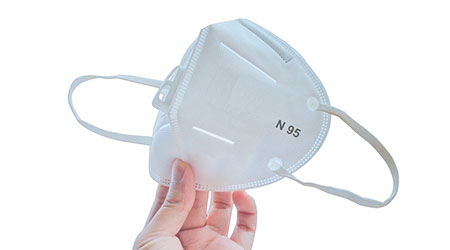A new study shows that ozone gas could provide a safe means for disinfecting certain types of personal protective equipment, according to an article on the Georgia Tech website.
Georgia Institute of Technology researchers used two pathogens similar to the novel coronavirus and found that ozone can inactivate viruses on items such as Tyvek gowns, polycarbonate face shields, goggles, and respirator masks without damaging them.
However, the items can’t include stapled-on elastic straps. Also,the study found that the consistency and effectiveness of the ozone treatment depended on maintaining relative humidity of at least 50 percent in chambers used for disinfection.
According to M.G. Finn, chair of Georgia Tech’s School of Chemistry and Biochemistry and leader of the study, ozone is one of the friendliest and cleanest ways of deactivating viruses and killing most any pathogen. Plus, it does not leave a residue; it’s easy to generate from atmospheric air and it’s easy to use from an equipment perspective.

 Healthcare and Resilience: A Pledge for Change
Healthcare and Resilience: A Pledge for Change Texas Health Resources Announces New Hospital for North McKinney
Texas Health Resources Announces New Hospital for North McKinney Cedar Point Health Falls Victim to Data Breach
Cedar Point Health Falls Victim to Data Breach Fire Protection in Healthcare: Why Active and Passive Systems Must Work as One
Fire Protection in Healthcare: Why Active and Passive Systems Must Work as One Cleveland Clinic Hits Key Milestones for Palm Beach County Expansion
Cleveland Clinic Hits Key Milestones for Palm Beach County Expansion